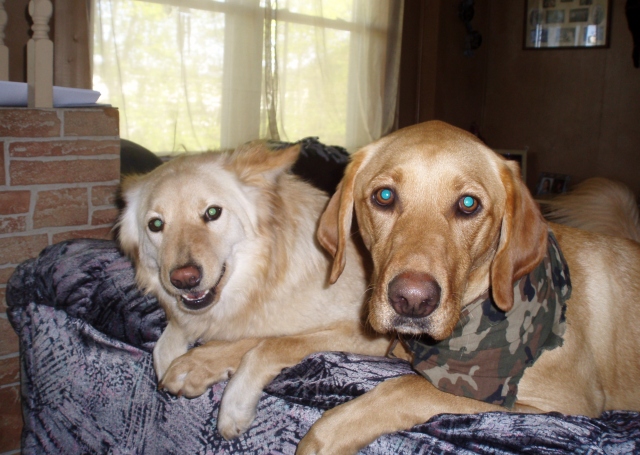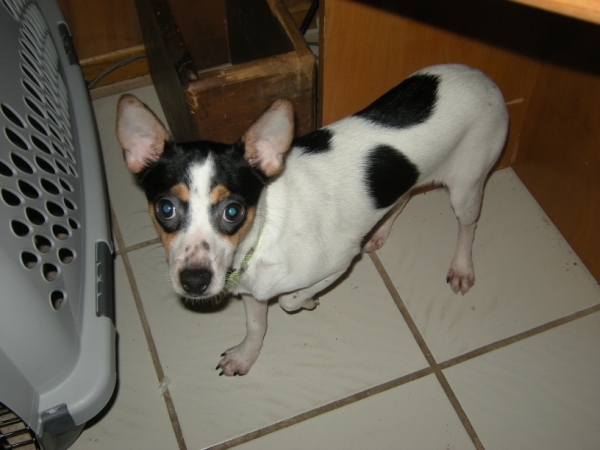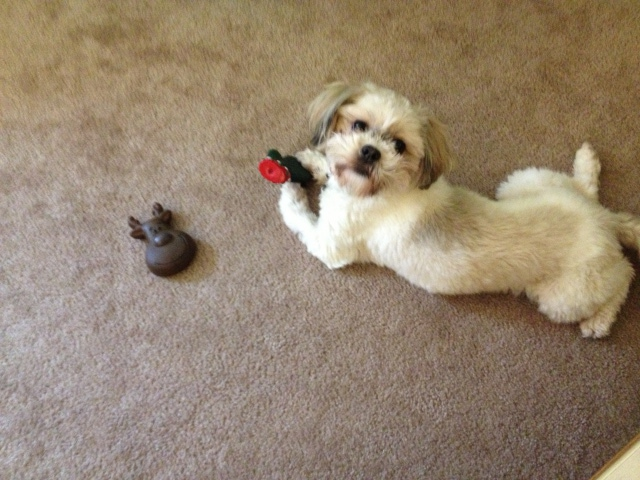QuestionHi I was just wondering how I can have my dog not bite as a result of defensive aggression. I have a pit bull, very well socialized with dogs and people and even lets my little neighbor practically pull his tail off and will just sit there until I stop him, so he is a very sweet dog but of course pit bulls get the bad reputation. So I want to take him to the dog park but I'm afraid that other dogs who have not been properly trained could bring out an insecurity in him and begin to nip at him and if he were to do the same I'm afraid he will get "reprimanded" for being the Pit bull. Is there anything I can do do make sure this doesn't happen.
AnswerGreetings,
Thank you for contacting All Experts. Dogs parks aren't really the best places for socialization. First and foremost, some people who go there don't really watch their dogs. Some owners seem to go there more for human socialization than dog socialization. You therefore will see some owners talking, others sending text messages and some even reading a book. To keep dogs safe, it's vitally important that dog owners monitor their dogs and intervene at the first signs of impending trouble-- hopefully their dogs have a really reliable recall!
Often we may assume dogs are having fun, but if dogs could talk they would often tell us a whole different story. Some dogs there engage in rude behaviors, bullying other dogs and acting rude. Other dogs often give them distance increasing signs but these dogs will keep at it. Often some dogs are being relentlessly chased and these dogs are fearful and trying to escape, when the owners think the dog is having fun. For more on distance increasing signs signals dogs give please read:
http://alexadry.hubpages.com/hub/-Distance-Increasing-and-Distance-Decreasing-Si
There is really no way to be totally safe at the dog park. Yes, steps can be taken to intervene swiftly, but dogs can be really fast in reacting. Also, behavior issues may worsen. If say a dog uses growling to tell a dog to get off his space, if that dog ignores the growl, the next step is often a bite. Dogs that are being chased may also arrive to a point of biting when cornered. It's not a surprise that behavior consultants get cases of dogs who were fine at dog park initially and then made a change for the worst after thier first bad experience. Here is an article depicting effects dog parks may have on dogs:Well Socialized? No well traumatized:
http://www.whenhoundsfly.com/well-socialized-well-traumatized/
So your concerns are really very rational as defensive biting can occur if the dog's pre-bite warning signals aren't being attended to by the other dog. This happens often when dogs are reprimanded for growling (punish the growl enough, and the next thing you have is a dog who bites without warning) or when other dogs don't move away when they hear the growl. Some dogs also won't back down when there's a challenge. You can almost hear them say "oh, really, what did you just say?, come over here and let's sort things out." And contrary to what many dog park fans may think, it's not good to adhere to the philosophy to let "dogs work it out." There are chances one or both of the two parties will be traumatized and start generating a dislike of other dogs that will take months and years of work involving systematic desensitization.
You may find interesting reading about dog play and learning more about the body language of healthy play and signs of trouble.
http://alexadry.hubpages.com/hub/Understanding-Dog-Play-Behaviors
http://hubpages.com/hub/-Understanding-Dog-Play-Behaviors-Part-Two
So are all dog parks bad? No, not necessarily, but there are better options. How about taking an obedience, nose work or agility class, where your dog learns to focus on
you in the presence of other dogs? A controlled setting where your dog receives positive reinforcement training is best. This is a good way to protect our dogs from negative experiences that can set them up for failure which can have an impact on future interactions with other dogs. Another option is to organize play dates with dogs you know your dog gets along with.
So to answer your question, no, there is no way to make sure a fight doesn't happen. Yes, you can be careful, intervene as quickly as you can, but there is absolutely no way to predict the behavior of the other dogs at a park and the way your dog may react.

 Puppy Yelping
QuestionQUESTION: Hi! I have a 6 month old Cocker
Puppy Yelping
QuestionQUESTION: Hi! I have a 6 month old Cocker
 Snapping/Snarling problem
Question
Gypsy and George
We have an 18 month old pure
Snapping/Snarling problem
Question
Gypsy and George
We have an 18 month old pure
 Potties insides but NEVER outside...
Question
This is my buddy :)
I have a 6 month old Fox T
Potties insides but NEVER outside...
Question
This is my buddy :)
I have a 6 month old Fox T
 Chewing/Stealing
Question
Clarkie
my shih-tzu Clarkie is 21 month
Chewing/Stealing
Question
Clarkie
my shih-tzu Clarkie is 21 month
 Dog jumps on counters, Refrigerator,cabinet tops when Im not home
Question
Bell
Hello,
I dont even know where to
Dog jumps on counters, Refrigerator,cabinet tops when Im not home
Question
Bell
Hello,
I dont even know where to